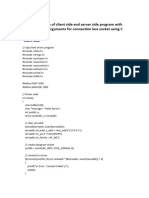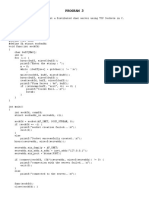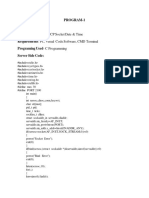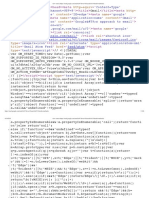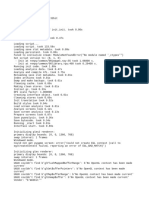0% found this document useful (0 votes)
50 views25 pagesNP Lab Manual
The document outlines several network programming laboratory exercises, including the implementation of TCP client/server programs in C for a daytime service and basic arithmetic operations. It also includes code for socket options, an echo server, and exercises using OPNET Network Simulator for various network topologies and protocols. Each program is accompanied by compilation instructions and example outputs.
Uploaded by
sahotunneCopyright
© © All Rights Reserved
We take content rights seriously. If you suspect this is your content, claim it here.
Available Formats
Download as PDF, TXT or read online on Scribd
0% found this document useful (0 votes)
50 views25 pagesNP Lab Manual
The document outlines several network programming laboratory exercises, including the implementation of TCP client/server programs in C for a daytime service and basic arithmetic operations. It also includes code for socket options, an echo server, and exercises using OPNET Network Simulator for various network topologies and protocols. Each program is accompanied by compilation instructions and example outputs.
Uploaded by
sahotunneCopyright
© © All Rights Reserved
We take content rights seriously. If you suspect this is your content, claim it here.
Available Formats
Download as PDF, TXT or read online on Scribd
/ 25

















